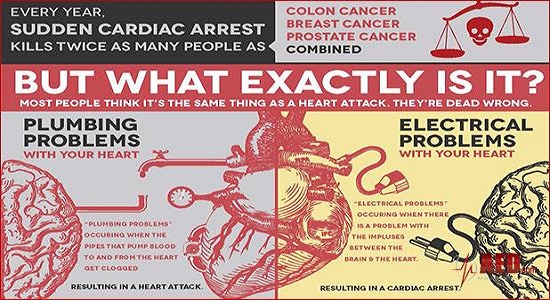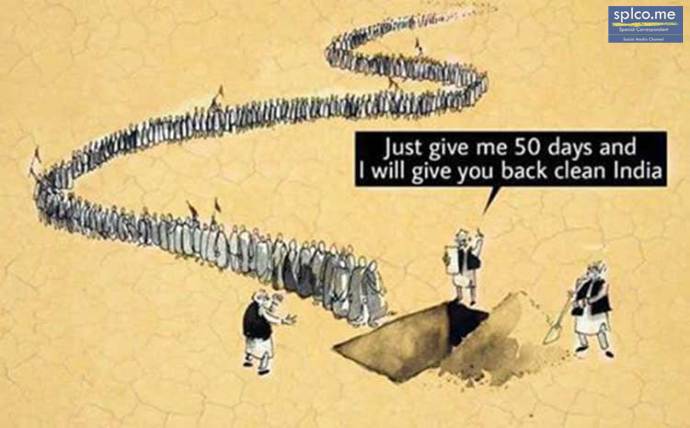Actress Sridevi passed away due to sudden cardiac arrest at the age of 54. This raises question how to first aid.

A patient suffers heart attack when the oxygenated blood is unable to reach the heart, which pumps it to the rest of the body. During a heart attack, the heart only partially looses the ability to pump blood. The heart continues to pump blood but with lower efficiency even when the patient is suffering a heart attack. A person suffering heart attack can go on for minutes to few hours in the condition, and yet survive. However, it is important to take the patient to emergency as early as possible because decreased flow of oxygenated blood to brain and organs can cause severe damage, trigger stroke, and even sudden cardiac arrest.
Whereas while suffering cardiac arrest, the heart of a patient stops functioning due to problems in the electrical system of the heart, disrupting the pumping action. As a result, the blood flow to brain and other parts of the body stops. Within seconds, the person drops down unconscious and has no pulse, and within minutes, he/she might die. Cardiac arrest: The question that arises is what then is a cardiac arrest? Cardiac arrest can occur suddenly, without any warning. While suffering cardiac arrest, the heart of a patient stops functioning due to problems in the electrical system of the heart, disrupting the pumping action. As a result, the blood flow to brain and other parts of the body stops. Within seconds, the person drops down unconscious and has no pulse, and within minutes, he/she might die.
The connection between heart attack and cardiac arrest: Heart attack is one of the many factors that lead to cardiac arrest. Poor cardiovascular health, heart diseases, arrhythmia or irregular heartbeats are some of the other factors that may disrupt electrical system of the heart and trigger cardiac arrest.
Here’s what to do in the ‘Golden Seconds’ of a cardiac arrest.
While in the case of heart attack, an attendant or rescuer has the golden hour to take the patient to a hospital, in the case of cardiac arrest, one has got precious, golden seconds. Therefore, it is all the more important to identify the symptoms of cardiac arrest and take immediate action.
When a person suffers cardiac arrest, one should immediately call for ambulance, and simultaneously perform cardiopulmonary resuscitation (CPR). Performing CPR involves hard pressing on the chest with hands, with the speed of 120 compressions per minute. This should be performed till the time medical help arrives. Any form of CPR is better than NO CPR.
“As was mentioned earlier, heart attack and cardiac arrest are not the same and cannot be used in one breath, just like ‘innocence and ignorance’. It becomes our responsibility to be more aware rather than claim innocence or ignorance of the two heart conditions, especially in the case of cardiac arrest, where we only have golden seconds to save a life”.
Quoted by Dr Vanita Arora, senior consultant, cardiac electrophysiologist & interventional cardiologist, Max Super Speciality Hospital.














